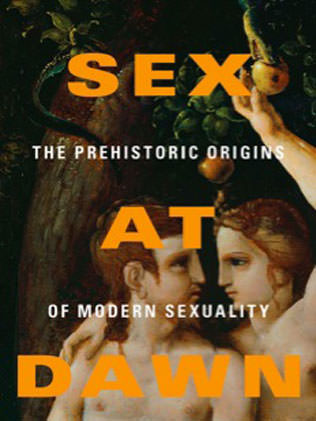
Spoiler alert: The book deconstructs the prevailing view of sex from a scarcity perspective and reintroduces us to the paradigm of abundance. I know you may find it hard to read now that you know how it ends. You may also think this article will be hard to read with such dense statements, but I trust you’ll continue in spite.
Abundance is an easy principal for all of us to accept, right? It may just be the ‘motherhood and apple pie’ of non-monogamy—it’s hard to argue with as much love, or sex, or both, that you’d want depending on your preferences and assuming it’s between consenting adults. Abundance isn’t “more is better,” as in the number of partners or experiences, but having more than enough lovers/partners/experiences available when you need them.
Yet, all of us enjoying the Swingset, as liberated as we are, don’t fully subscribe to the abundance model. Consider the often discussed topic of jealousy. It’s a real emotion. Sometimes it’s between partners, and other times couples can get jealous of other couples. How do we avoid it? How do we resolve it? Is there something wrong with us if we don’t feel it?
The real question is: Can jealousy even exist without scarcity?
In abundance, one's gain is not dependent on someone else's loss. There’s no scoreboard. Jealousy has no oxygen to breathe. When you see play friends going off with another couple at a party, you think “good for them” and not “they're OUR friends and we lost out.” Is that easy for you or do you struggle with that?
Sex at Dawn documents how deeply sexual scarcity is within our psyche, starting with Darwin's theory of selection as “a struggle between males for access to passive, fertile females who would submit to the victor.” Darwin's generalizations to humans from his observations of other species that have been central to the concept of sexual exclusivity, which gives rise to scarcity. Amidst all of the intellectual arguments to refute Darwin's premises, Sex at Dawn zings him with: “But as is the case when it came to gentleman geniuses, he was a bit clueless when it came to women.”
And if putting their proverbial hand down the pants of conservatives was not enough to send them off, the authors reach around and grab their wallets by bringing the economic theory of self interest into the argument. Yes, I’m saying Sex at Dawn gives conservatives a reach around using the invisible hand: “The faulty assumptions that scarcity-based economic thinking is somehow the de-facto human approach…has misled much…thought over the past few centuries.” It’s human nature to be self-interested and in conflict, over land, money, and especially over sex, right? Not so fast.
The converse approach—abundance—is about the value of sharing without expectations for return and without fear of coming up short for yourself. It’s self-regulating (“I’ll have as much as I need when I need it”), and it’s communal (“the more the merrier”). If you’ve ever experience an orgy, these principles might sound familiar.
Surely these are temporary situations, unstable isotopes as it were, that cannot be sustained. Wrong. Common among the examples in Sex at Dawn of where these principles have been used in other cultures is one denominator: matriarchy.
“But rather than feel threatened, we’d recommend that our male readers [on the Swingset, we could substitute vanilla readers here]ponder this: Societies in which women have lots of autonomy and authority tend to be decidedly male-friendly, relaxed, tolerant, and plenty sexy. Got that, fellas [vanillas]? If you’re unhappy at the amount of sexual opportunity in your life, don’t blame the women. Instead, make sure they have equal access to power, wealth, and status. Then watch what happens.”
One of the first things I remember reading about swinging was how women are in control. I both accepted this fact fully, and was dead wrong about its basis.
My original swinging paradigm was Darwinian: I would be one of the males competing for female selection. The competition left a bitter taste of insecurity from time to time. And although I never personally visited jealously, it was surely living next door.
What I have come to appreciate—relish in fact—about being in this culture is captured in the excerpt above: women’s autonomy and authority over their own sexuality is good for us all. I’ve seen what happens and it’s a beautiful thing.
What do you think? Did you read Sex at Dawn differently?
The Professor (@gingerntheprof)


2 Comments
I loved that book. I thought it presented a very interesting set of counter-arguments to the "traditional narrative" as they call it.
I had never before considered the origins of monogamy. The author's description of the progression of humans from hunter/gatherer to agrarian society and its impact on sex (i.e. the concept of parentage only mattered once inheriting land was important).
With the advent of really effective birth control, we can have stable marriages with children of known parentage AND recreational sex with many mates. Bingo!
I thought it was an interesting read. The central point that I took from it was to examine the assumptions that you have when you're looking at the information. As humans we tend to give more weight to the things that support our assumptions and disregard the things that disprove our assumptions.
My one complaint about the book is that they questioned the assumptions underlying other people's research but didn't really appear to do that with their own. Although I can understand that, because they were putting forth a pretty radical theory in a book for the mass market; so they had to make their own case as strong as possible.
It was a thought provoking book and I hope it inspires people to do more research in a similar vein; both in the anthropological sense and the personal experimentation sense.
The phrase "gives conservatives a reach around using the invisible hand" is definitely going to haunt me for a while; or at least until election day. 🙂